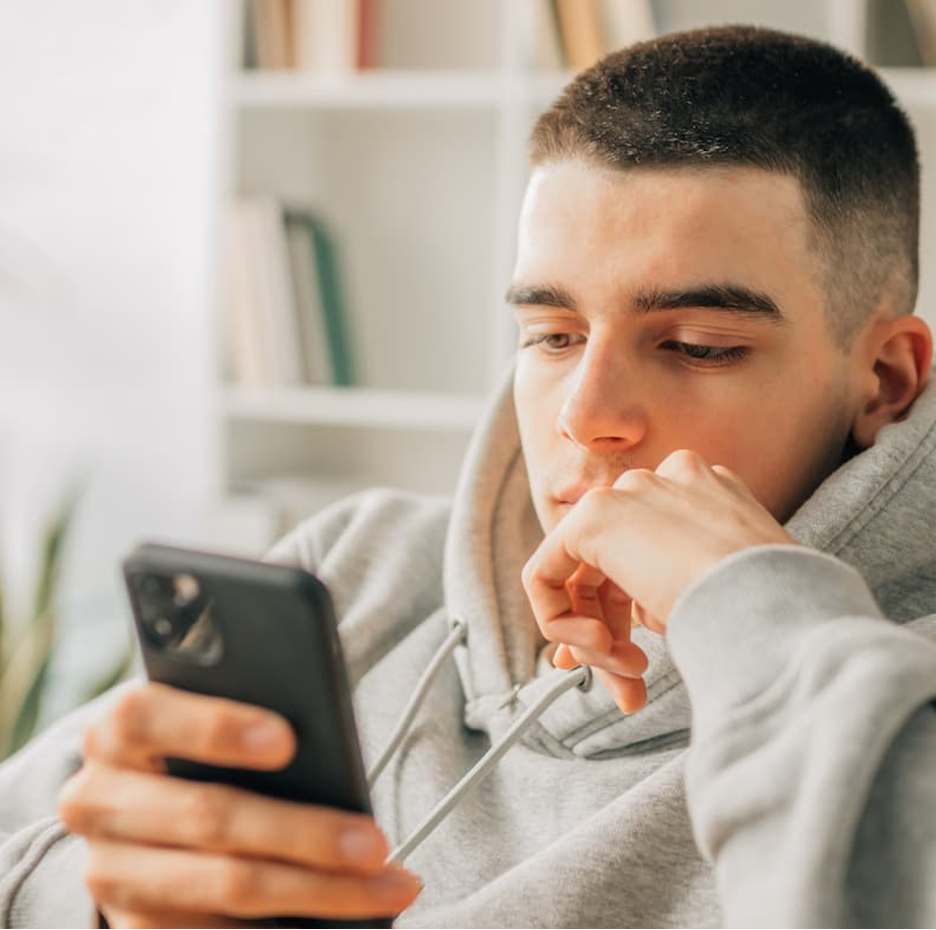Young Adults Find Relief from Depression with App-Based Interventions
A 12-week study highlights digital behavioral interventions as promising tools for addressing mental and physical health risks in young people.
By
Lana Pine
| Published on September 23, 2024
5 min read
Credit: Adobe Stock/carballo

Adolescence and early adulthood are crucial periods for mental health issues and forming health behaviors. A 12-week trial showed a digital behavioral health smartphone app, Vira, successfully reduced stress, anxiety and depression among a group of young adults at risk of depression and obesity. The study was the first to evaluate an app-based intervention using passive mobile sensing to track behavior and give individualized insights.
Digital behavioral activation interventions, both with or without coaching support, offer promising opportunities to address the risk factors for both mental and physical health problems by expanding access to established mental health support. Behavioral activation has been shown to improve a range of depression-related factors, such as anxiety, sleep, emotional and social support, general wellbeing and obesity.
Health behaviors are often established during adolescence and can persist into adulthood. These include both positive (exercise and healthy diet) and negative (substance use and unsafe sex practices) behaviors.
“Mental health problems in young people often precede and predict the onset of risk factors for chronic physical health conditions,” wrote a team of investigators led by Lauren Weiner, PhD, behavioral scientist and director of Clinical Science at Ksana Health in Oregon. “This is especially true for obesity, a risk factor for a range of chronic diseases.”
The two-arm, internet-based, pilot study, published in JMIR Mental Health, sought to evaluate two separate versions of the Vira app to better understand their feasibility, acceptability and effectiveness in improving mental health among subjects with depressive symptoms and obesity risk factors. A total of 73 participants were recruited and randomly assigned to either self-guided use (Vira Self-Care) or a version with coaching (Vira+Coaching).
Eligible patients were aged 18 to 25 years, lived in the United States, were fluent in English, owned a smartphone, had elevated depressive symptoms and were either overweight or had a parental history of overweight or obesity.
Subjects were required to complete self-reported outcome measures at baseline and study completion (12 weeks). All of the procedures were performed using digital communications.
In the self-care version, passive data streams were shown to be related to changes in mental health. The app asked subjects to assess their sense of enjoyment of the previous day using a daily question. It also offered up to two personalized insights per week about behavioral factors that may be related to mood, such as location, communication or sleep patterns.
In the coached cohort, coaches helped patients set goals and create action plans based on the personalized insights of the app that picked up on patterns of behavior that could impact mood. Coaches also encouraged patients to participate in physical, social or self-care activities. They monitored the participant’s progress at least once per week between scheduled weekly text chats, which lasted between 10 to 30 minutes, and focused on supporting participants and identifying any barriers to ongoing use.
Both versions were found to be effective in reducing stress, anxiety, and depression. Although both options displayed strong user engagement and acceptability, those in the coaching cohort had more sustained engagement coupled with greater reductions in depression and anxiety compared with the self-guided care group. Subjects in the coached group also had reductions in sleep-related impairment.
Subjects reported more motivation for and confidence in making behavioral changes, although these increases were greater among those who were in the coached group.
Investigators concluded digital interventions like Vira are feasible and effective, warranting further research, such as intervention optimization of the virtual coach-supported version with a longer follow-up period, including an active control group, and testing salient mediator and moderators of outcome effects with the use of more objective engagement metrics.
“Overall, the combination of Vira with coaching was found to be more engaging and effective, but an enhancement to the self-care version of the app may enhance these outcomes for self-guided users,” investigators wrote.

